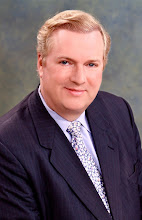
According to the Huffington Post, Obama told Bay Area supporters: "You go into these small towns in Pennsylvania and, like a lot of small towns in the Midwest, the jobs have been gone now for 25 years.... And it's not surprising then they get bitter. They cling to guns or religion or antipathy to people who aren't like them or anti-immigrant sentiment or anti-trade sentiment as a way to explain their frustrations."
McCain's campaign described Obama's comments as "condescending" and "out of touch."
I'll let Obama's comments stand for themselves. So, too, for the candidates responses.
 But this whole controversy takes me back to the late 1970s and a famous (and disastrous) speech by then President Jimmy Carter. It has been labeled over the years as the "malaise speech." It was received by the public with a giant thud; and Carter was voted out of office in a landslide:
But this whole controversy takes me back to the late 1970s and a famous (and disastrous) speech by then President Jimmy Carter. It has been labeled over the years as the "malaise speech." It was received by the public with a giant thud; and Carter was voted out of office in a landslide:
"I want to talk to you right now about a fundamental threat to American democracy.... I do not refer to the outward strength of America, a nation that is at peace tonight everywhere in the world, with unmatched economic power and military might," Carter said.
 "The threat is nearly invisible in ordinary ways. It is a crisis of confidence," he continued. "It is a crisis that strikes at the very heart and soul and spirit of our national will. We can see this crisis in the growing doubt about the meaning of our own lives and in the loss of a unity of purpose for our nation."
"The threat is nearly invisible in ordinary ways. It is a crisis of confidence," he continued. "It is a crisis that strikes at the very heart and soul and spirit of our national will. We can see this crisis in the growing doubt about the meaning of our own lives and in the loss of a unity of purpose for our nation."
The problem with the Carter and Obama speeches is not whether they are right or wrong; it's whether they project optimism or pessimism in their leadership style. The tone of a speech can be as critical as the substance, sometimes more so. When FDR said "We have nothing to fear, but fear itself," people believed him. We won a war and overcame a depression. People want to hear about hope - not despair.
One of the qualities that attracted people to John F. Kennedy was his sense of calling America to a higher mission. Putting a man on the moon did not have to be science fiction, it could be reality. People loved Ronald Reagan's optimism. It was "morning in America," and this nation was the "shining city on a hill." The idea was that America's best days were ahead of her, not in the past. And, in his first inaugural address, Bill Clinton said, "There's nothing wrong with America that cannot be cured by all that's right with America." Like Reagan and Kennedy before him, he believed in the country's "can do" spirit.
That's what people want to hear. And in many respects they have been hearing it this year from Barack Obama. His message of hope and optimism, especially in the face of adversity, is why he is out front today.
His odd "left turn" to try and psychoanalyze the motives of rural voters is odd and potentially self-destructive if he keeps it up.
I will be in Philadelphia from April 21 to 23 reporting on the crucial Pennsylvania primary.
It's Tax Time! Get tips, forms and advice on AOL Money & Finance.

No comments:
Post a Comment